| Weight | 1300 g |
|---|---|
| Belly | 3.9 cm.. |
| Blade Size and Type | 13 inch (33.02 cm) and Polished blade |
| Handle Circumference | 4.5" |
| Handle Size and Type | 5.5 inch (13.75cm) Buffalo Horn and Fixed blade Handle. |
| Hardness of steel | spine=22-25 RC, belly=45-46 RC, edge=54-55 RC. |
| Lower Spine | spine=22-25 RC, belly=45-46 RC, edge=54-55 RC. |
| Upper Spine | 10 mm. |
| Overall length | 18.5" |
| Place of Origin | EGKH Factory in Dharan. |
II WORLD WAR GRIPPER HANDLE KUKRI
With its origin in Nepal this II World War Gripper Handle Kukri was later imitated by the Indian Gurkha army in Dehradoon during World War II. Its popularity was such that Nepal could not meet the increasing demand hence Dehradoon took over and started producing it in a large scale. This is how this World War Khukuri (kukri) got its name “The Dehradoone Khukuri” also. This World War khukuri (kukri) has one of the most beautiful shaped due to more curvness in the front part of the blade.
$90.00
With its origin in Nepal this II World War Gripper Handle Kukri was later imitated by the Indian Gurkha army in Dehradoon during World War II. Its popularity was such that Nepal could not meet the increasing demand hence Dehradoon took over and started producing it in a large scale. This is how this World War Khukuri (kukri) got its name “The Dehradoone Khukuri” also. This World War khukuri (kukri) has one of the most beautiful shaped due to more curvness in the front part of the blade.It is slightly larger than the current issue.As it is because it was more in use in the World War Days. All Khukuris have two pockets on the back of the scabbard which hold a blunt steel called “chakmak” for sharpening the blade or for striking spark from flint and a little knife known as “karda” used for skinning small animals such as rabbits. The notch (kaura or kaudi) in the blade near the hilt of most khukuris serves as conduit for the blood on the blade to drip out, thus preventing it from soiling the hilt, as well as a device for catching and neutralizing and enemy blade.
Only logged in customers who have purchased this product may leave a review.

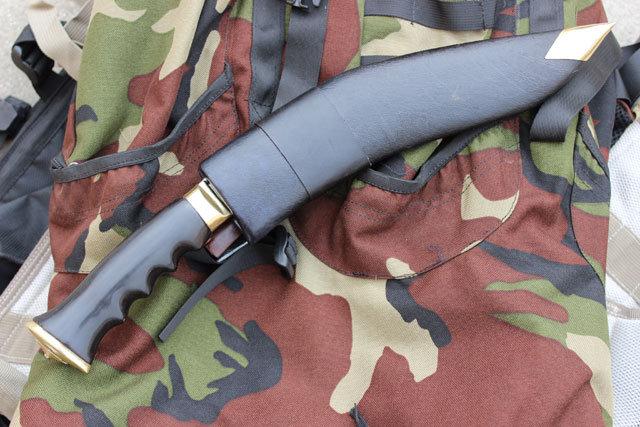
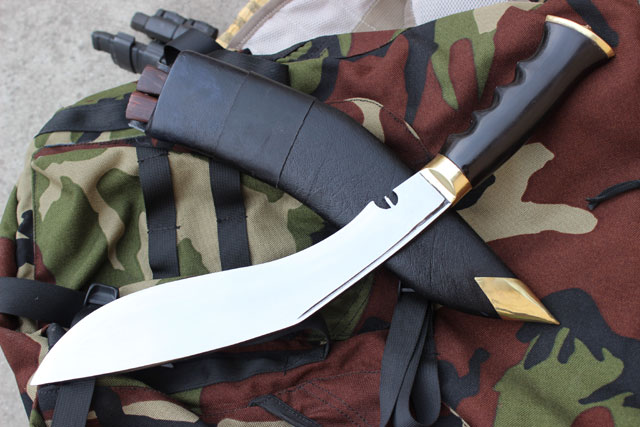
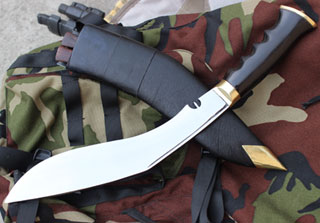
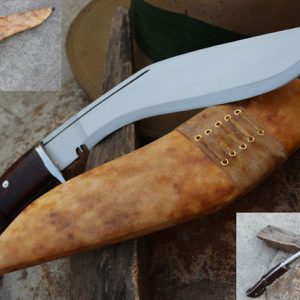
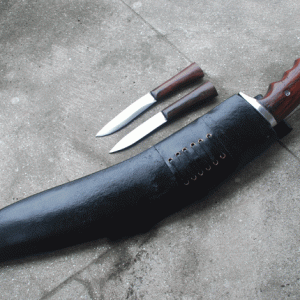
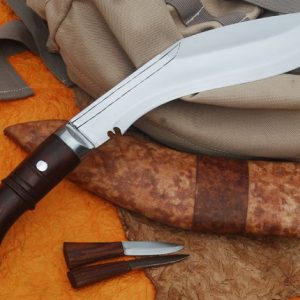
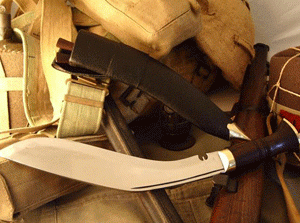
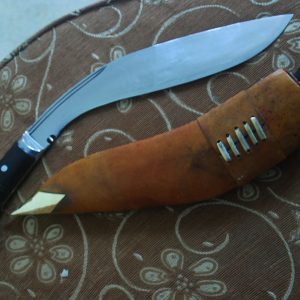
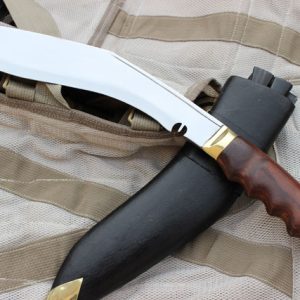
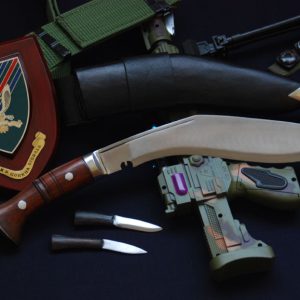
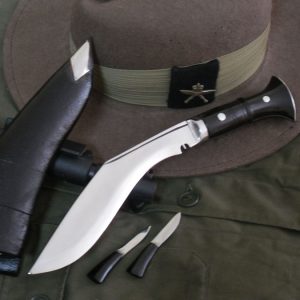
Reviews
There are no reviews yet.